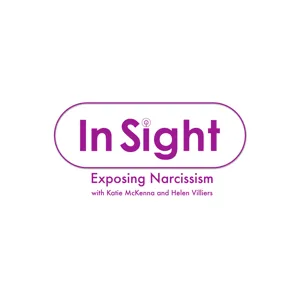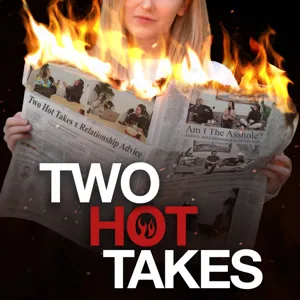Podcast Summary
Fear of saying no rooted in childhood experiences: Childhood experiences with narcissistic parents can shape our fear of rejection and invalidation when expressing our needs or preferences, making it hard to assert ourselves and set boundaries in adulthood.
The fear of saying no is deeply rooted in childhood experiences, often shaped by narcissistic parents who reject or shame us when we express our needs or preferences. This fear is not just about the word "no," but about the fear of rejection and invalidation. Even before we can speak, our bodies communicate "no" through actions like turning away or crying. When these expressions are met with anger or insults, we learn that our "no" is rejected and that we ourselves are invalid. This fear can carry into adulthood, making it difficult for us to assert ourselves and set boundaries. It's important to recognize and challenge these patterns, allowing ourselves to embrace our autonomy and express our needs with confidence.
Impact of narcissistic parents on a child's ability to say 'no': Narcissistic parents can erode a child's autonomy, leading to fear and powerlessness in expressing 'no' as an adult, potentially resulting in negative consequences in relationships.
The way a child's "no" is handled by a narcissistic parent can significantly impact their ability to assert boundaries and express themselves in adulthood. The narcissistic parent may erode the child's autonomy and agency, leaving them feeling powerless and dependent. This can lead to a fear of saying "no" as an adult due to past conditioning and the potential for negative consequences, such as rejection, shame, and judgment. It's essential to recognize that this pattern may have originated in childhood and to understand that the cost of saying "no" can be high, particularly in relationships with narcissistic individuals. By acknowledging the impact of past experiences and learning to assert ourselves in healthy ways, we can begin to reclaim our power and autonomy.
Separating emotions from actions: Focus on behavior and consequences, not personal attacks. Understand why others say no and address underlying issues, rather than taking it as a personal attack.
It's essential to separate our emotions from the actions or decisions of others. Instead of labeling someone as "bad" when they don't comply with our wishes, we should focus on the behavior and its consequences. This approach is particularly important when dealing with children, as it helps them understand the reasons behind our requests and encourages open communication. When faced with a "no" from someone, it's crucial not to take it as a personal attack or an attempt to upset us. Instead, we should try to understand why they're saying no and address any underlying issues. This approach contrasts with the behavior of narcissistic parents, who center their emotions and view every no as a personal attack. In adulthood, it's essential to avoid assuming others' emotions and being overly responsible for their happiness. This dynamic, which can stem from past experiences with narcissistic parents, can lead to toxic relationships and friendships. By recognizing that others have their emotions and that we're not responsible for them, we can foster healthier and more balanced relationships.
People-pleasing behavior can lead to resentment and frustration: Recognize people-pleasing motivations and prioritize own needs for healthier relationships
People-pleasing behavior, which stems from a fear of rejection and a desire to avoid conflict, can lead to resentment and frustration when our own needs and wants are consistently ignored. This dynamic can manifest in various ways, such as feeling obligated to always say yes to others' requests while neglecting our own desires, or assuming others feel the same way about saying no that we do. However, it's essential to remember that everyone experiences the word "no" differently, and denying their autonomy and feelings can build up frustration and resentment. To avoid this, it's crucial to communicate honestly and consider the potential costs and benefits of our yeses and nos. By being mindful of our motivations for people-pleasing and recognizing that it's okay to prioritize our own needs, we can build healthier relationships and reduce feelings of resentment and frustration.
Expressing 'no' authentically builds trust: Clear communication and expressing 'no' authentically foster trust, deepen connections, and promote growth in relationships.
Clear communication is crucial in relationships, whether it's expressing your feelings or receiving honest feedback. When people please and constantly say "yes" or give without expecting anything in return, it can lead to feelings of unease and distrust in the other person. This is because people need to know that their partners can say "no" and mean it, as it builds trust and authenticity in the relationship. Moreover, when people don't communicate their true feelings, it can lead to resentment and dissatisfaction, which can negatively impact the relationship. It's essential to be honest about what we want and don't want, even if it's uncomfortable, as it sets healthy boundaries and fosters a deeper connection. Additionally, it's important to recognize that honest feedback is necessary for growth and trust in a relationship. When we receive constructive criticism, it allows us to pivot and improve, whereas constant agreement can be misleading and ultimately damaging. In summary, clear communication and the ability to express "no" authentically are essential components of healthy and fulfilling relationships. It's crucial to prioritize open and honest communication to build trust, deepen connections, and foster growth.
Understanding People-Pleasing Behavior: People-pleasing behavior can stem from trauma and lead to unhealthy communication patterns. Direct communication is essential for healthy relationships.
People-pleasing behavior, which can include mind reading and enabling unhealthy communication, is a damaging survival technique often born from trauma. It places an unfair burden on others to read our minds and can lead to unhealthy patterns in adult relationships. Direct communication is essential for healthy relationships, and it's crucial to recognize when we're not being asked but instead being manipulated through guilt or empathy. We must learn to give that responsibility back to the other person and demand clear, direct communication. Avoiding asking directly for what we need or want can stem from a traumatic upbringing where we learned to build a picture and tell a story to justify our needs. But, it's important to remember that direct communication is the key to every relationship and essential for mutual respect and understanding.
Be mindful of your tendency to say yes: Consider if requests are your responsibility, ask if you were asked, and remember saying 'no' is okay
It's important to be mindful of our tendency to say yes to requests, even when they may inconvenience us. This pattern can lead to feelings of resentment and being taken advantage of. To break this cycle, we need to ask ourselves if the request is our responsibility and if we were actually asked. It's okay to acknowledge that we might not want to do something but are doing it to help someone else. However, it's crucial to remember that our "no" does not have to be justified or apologized for, and we are not responsible for others' emotions in response to it. Taking a pause to check-in with our feelings and needs is a powerful step towards building self-awareness and autonomy. Remember, saying "no" is a full sentence, and we don't need to explain or apologize for it.
Practice saying 'leave that with me' for small requests to build confidence in larger situations: Practicing asserting boundaries with small requests can help build confidence and communicate that you have a life outside of the request, leading to stronger relationships and a greater sense of self-worth.
Practicing saying "leave that with me" in response to small requests can help build the confidence to assert your boundaries and values in larger situations. This practice not only sets a healthy habit but also communicates that you have a life outside of the request. The physical response of a tug in your tummy can serve as a guide to identify when you're unsure or uncomfortable with a situation. Remember, "no" is more than just a refusal; it's an assertion of your identity and beliefs. Building the muscle to communicate directly and assertively can lead to stronger relationships and a greater sense of self-worth. Don't let the fear of saying "no" hold you back from standing up for yourself.
Communication patterns shaped by upbringing: Learned unhealthy communication styles from narcissistic parents, recognizing them as not a reflection of worth, takes courage to unlearn, progress is possible, and sharing wins can be encouraging.
Our communication styles are largely shaped by our upbringing, particularly by our interaction with our primary caregivers, often our parents. If we grew up with a narcissistic parent, we may have learned unhealthy communication patterns such as triangulation, gossiping, and manipulation. These behaviors may feel shameful to us now, but it's essential to remember that we were children then and lacked the agency and power to change our circumstances. It's important to recognize that these behaviors are learned and not a reflection of our inherent worth. Unlearning these patterns takes courage and can be a lifelong process, but it's possible. We may revert to our trauma response even when we have healthy communication skills, but with determination and bravery, we can make progress. Remember, courage doesn't mean the absence of fear, but rather the ability to act despite it. Sharing our wins, no matter how small, can be an encouraging step in the journey.
Engage with your audience to build a successful community: Connecting with others through commenting, joining groups, and supporting creators leads to meaningful relationships and a deeper understanding of topics.
Engagement and interaction with your audience is crucial for building a successful community. Whether it's through commenting on social media, joining a Facebook group, or becoming a Patreon supporter, making an effort to connect with others can lead to meaningful relationships and a deeper understanding of the topics at hand. Don't hesitate to ask questions or share your thoughts, as the creators of the content appreciate the feedback and value the opportunity to learn from their audience. So, keep engaging, keep asking, and keep growing together. Take care and see you next time!






